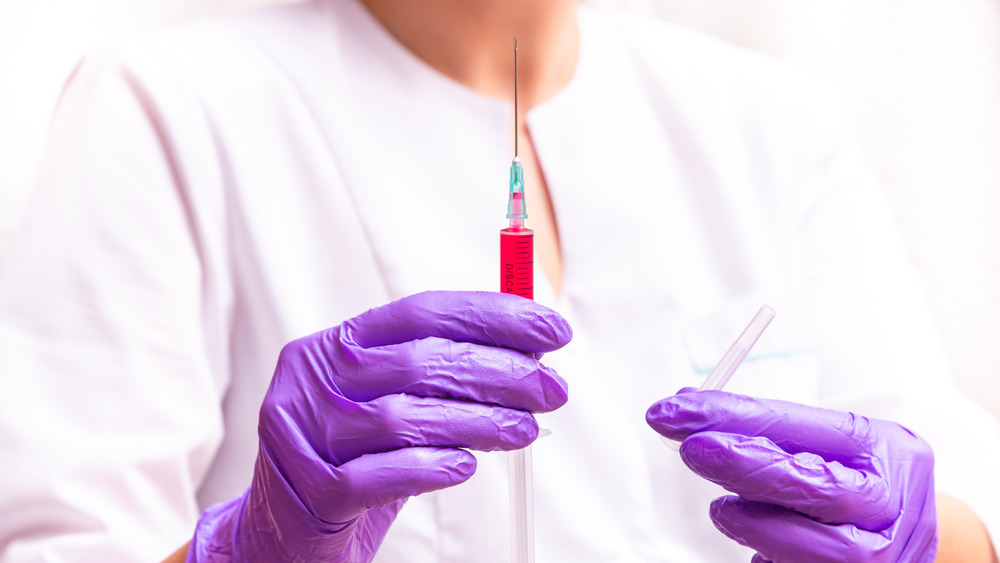Are Vitamin B12 Injections Safe?
The most common and effective way to treat or prevent a vitamin B12 deficiency is with shots prescribed by a doctor and injected into the muscle. According to Healthline, vitamin B12 injections are considered generally safe, but some do have allergic reactions or sensitivity. Tell your doctor immediately if you have any side effects.
You probably don't need to take a B12 supplement or get a B12 injection if you eat foods with the vitamin. If you're at risk of a B12 deficiency, you can usually take a supplement. Doctors use B12 shots as a last resort, such as if a supplement isn't working or a B12 deficiency causing severe symptoms.
Some doctors prescribe a vitamin B12 shot regularly, which they can give you in the office or teach you to do it yourself at home. If they teach you how to give yourself the injections, your doctor would call the prescription into your pharmacy of choice for you to pick up. Side effects may include diarrhea or headaches, and be sure to tell your doctor about these if they become bothersome. Side effects to tell your doctor about immediately are skin rashes, itching, hives, swelling of the tongue, lips, or face, blueish skin, chest tightness or pain, trouble breathing, wheezing, dizziness, or red, swollen, painful area on a leg (via the Cleveland Clinic).
Sources of vitamin B12 and why you need it
Vitamin B12 is vital for red blood cell production, DNA synthesis, and proper nerve function. If you're not getting enough B12, you can experience anemia, fatigue, weakness, constipation, decreased appetite, weight loss, dizziness, lightheadedness, confusion, poor memory, soreness of your tongue and mouth, and tingling and numbness in your hands and feet, according to Harvard Health Publishing.
Some factors make you more likely to have a vitamin B12 deficiency, such as aging, surgery to remove part of the stomach, Crohn's disease, celiac disease, and a vegan diet. You may also be at risk if you take certain medications, such as proton pump inhibitors (Nexium, Prilosec, Prevacid), histamine-2 receptor agonists (Pepcid and Zantac), and metformin for type 2 diabetes.
Adults need 2.4 micrograms of vitamin B12 daily, according to the National Institutes of Health Office of Dietary Supplements. You can get B12 from beef liver, clams, fish, poultry, eggs, dairy products, breakfast cereals, and nutritional yeast. You can ask your doctor to do a blood test if you're worried you may have a vitamin B12 deficiency.


